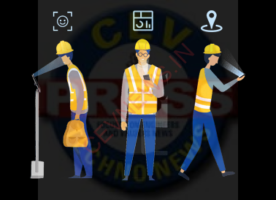LIABILITY ISSUES RELATED TO PLANT AND MACHINERY OPERATIONS
Liability Issues Related to Plant and Machinery Operations in India
Introduction
In India, liability issues related to plant and machinery operations are of paramount importance due to the potential risks involved in industrial activities. These risks can result in significant legal and financial consequences for businesses. This article explores the various aspects of liability, regulatory frameworks, and preventive measures related to plant and machinery operations in India.
Legal Framework
1. The Factories Act, 1948
The Factories Act is a key legislation governing industrial safety and health standards. It mandates employers to ensure the safety of plant and machinery and stipulates regular maintenance and inspections. Key provisions include:
- Section 7A: Duties of occupier to ensure, as far as practicable, the health, safety, and welfare of workers.
- Section 21: Fencing of machinery.
- Section 23: Employment of young persons on dangerous machines is prohibited.
2. The Workmen’s Compensation Act, 1923
This Act provides compensation to workers who suffer injuries or disabilities due to accidents arising out of and in the course of employment. Key aspects include:
- Employer’s liability for compensation in case of injury, disablement, or death.
- Schedule II lists out hazardous occupations and processes where higher safety standards are required.
3. The Environment Protection Act, 1986
This Act mandates industrial units to operate in an environmentally sustainable manner. Non-compliance can lead to heavy penalties and liability for environmental damage. Important provisions include:
- Section 7: Prohibits discharge of environmental pollutants in excess of prescribed standards.
- Section 15: Penalties for contravention of the Act and rules.
4. The Public Liability Insurance Act, 1991
This Act requires industries handling hazardous substances to take out insurance policies. It ensures that affected parties receive immediate relief in case of an accident. Key features are:
- Mandatory insurance: For handling hazardous materials.
- Compensation: Quick relief to affected individuals.

Types of Liability
1. Civil Liability
Civil liability arises when there is a breach of duty resulting in harm or loss to another party. In the context of plant and machinery, this can include:
- Negligence claims: Failure to maintain machinery leading to accidents.
- Product liability: Defective machinery causing harm.
2. Criminal Liability
Criminal liability can be imposed for violations of safety standards and regulations. This can result from:
- Willful neglect: Ignoring mandatory safety procedures.
- Failure to comply: Non-adherence to statutory safety and environmental norms.
3. Vicarious Liability
Employers can be held vicariously liable for the actions of their employees if those actions occur within the scope of employment. This includes:
- Accidents: Caused by operator error or negligence.
- Damages: Resulting from inadequate training or supervision.
Risk Management and Prevention
1. Regular Maintenance and Inspections
Ensuring that machinery is regularly maintained and inspected can prevent accidents and reduce liability. This includes:
- Preventive maintenance schedules: Adhering to manufacturer guidelines.
- Routine inspections: Identifying and rectifying potential hazards.
2. Employee Training
Providing comprehensive training to employees on the operation and safety of machinery is crucial. This should cover:
- Safety protocols: Detailed instructions on safe operation practices.
- Emergency procedures: Steps to take in case of machinery failure or accidents.
3. Safety Audits and Compliance
Conducting regular safety audits and ensuring compliance with all relevant regulations can mitigate risks. Important actions include:
- Internal audits: Regular review of safety procedures and compliance.
- Third-party audits: Engaging external experts to assess safety standards.
4. Adequate Insurance Coverage
Obtaining appropriate insurance coverage is essential to manage financial risks associated with machinery operations. This involves:
- Public liability insurance: Covering third-party claims.
- Workmen’s compensation insurance: Protecting employees and mitigating employer’s liability.
Liability issues related to plant and machinery operations in India encompass a broad range of legal, financial, and operational aspects. Businesses must ensure compliance with regulatory frameworks, implement robust safety measures, and maintain adequate insurance coverage to mitigate risks and protect all stakeholders involved. Regular maintenance, employee training, and proactive risk management are key to preventing accidents and minimizing liability.


